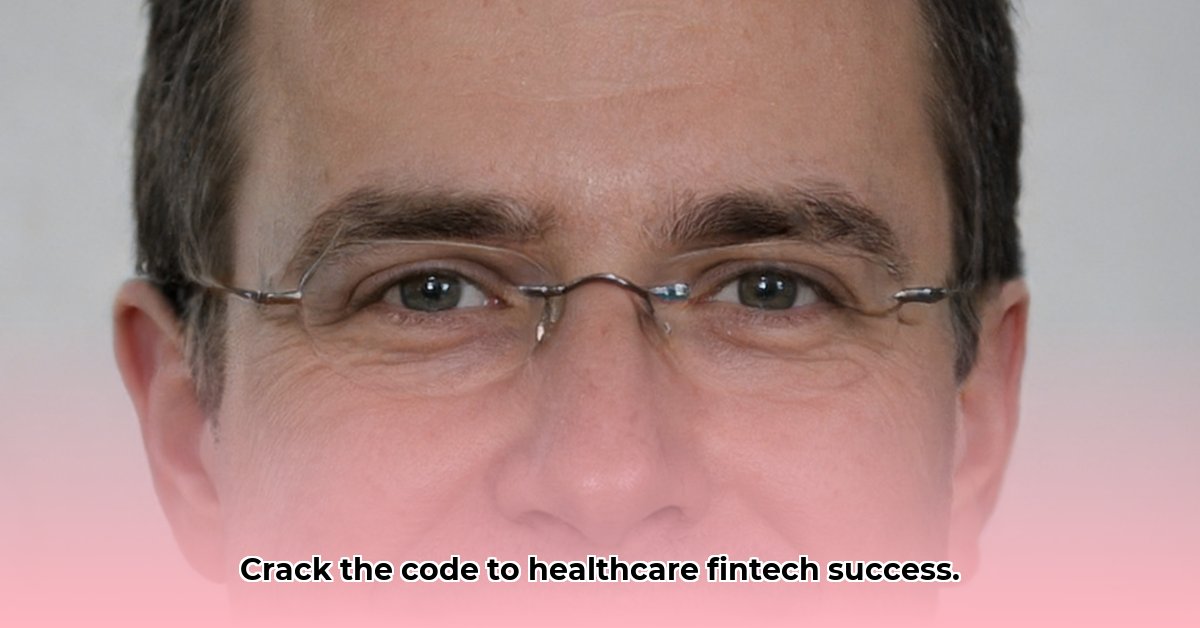
The Evolving Landscape of Healthcare Fintech
The healthcare industry is undergoing a dramatic transformation driven by escalating costs, increasing patient demands for transparency, and the disruptive potential of technology. Healthcare Fintech, at the intersection of healthcare and financial technology, is responding to these challenges with innovative solutions. This sector is experiencing explosive growth, fueled by the need for streamlined billing processes, improved payment options, and the enhanced security demanded by sensitive patient data. How are companies leveraging these opportunities? What strategies are proving most successful? Let's explore the key trends and analyze the impact of Mark Wang's ventures within this dynamic environment. For more information on Mark Wang, see his net worth here.
Market Analysis: Navigating the Healthcare Fintech Frontier
The Healthcare Fintech market is characterized by several key trends:
- Rise of AI and Machine Learning: AI-powered solutions are transforming medical billing, fraud detection, and claims processing, leading to increased efficiency and reduced costs. But concerns around data privacy and algorithmic bias remain significant obstacles.
- Patient-Centric Approaches: Patient portals, mobile payment options, and personalized financial planning tools are enhancing the patient experience and promoting greater transparency. The challenge lies in ensuring seamless integration with existing healthcare systems.
- Increased Regulatory Scrutiny: HIPAA compliance and other stringent regulations necessitate robust security measures and ongoing compliance efforts. This adds complexity for companies but is essential to building trust and maintaining patient confidence.
- Growing Competition: The market is rapidly attracting venture capital funding, leading to increased competition among established players and new entrants. Differentiation through unique value propositions is critical.
Is the current market saturation hindering innovation, or is the increased competition driving the development of more sophisticated and effective solutions? Only time will tell as the industry continues to evolve.
Mark Wang's Ventures: A Deep Dive into Innovative Strategies
While specifics of Mark Wang's ventures are not detailed in the provided text, we can extrapolate potential strategies based on industry trends and best practices. His success likely hinges on several key factors:
- AI-Driven Efficiency: His companies likely leverage AI for automated billing, claims processing, and fraud detection, significantly reducing operational costs and increasing accuracy. This requires a deep understanding of both AI algorithms and the nuances of healthcare billing systems, a complex undertaking.
- Data Security and Compliance: Protecting sensitive patient data is paramount. Measures such as robust encryption, access controls, and rigorous adherence to HIPAA regulations are crucial for building trust and avoiding potentially devastating penalties. This is non-negotiable in the Healthcare Fintech space.
- Strategic Partnerships: Collaboration with hospitals, insurance providers, and other stakeholders can facilitate adoption of new technologies and expand market reach. These partnerships require careful negotiation and a clear understanding of each partner's needs.
- User-Friendly Interfaces: Intuitive and user-friendly interfaces are essential for patient adoption and satisfaction. Simplified payment gateways and transparent billing processes are likely key features of Mark Wang's platforms.
What specific technological innovations does Mark Wang employ to differentiate his ventures and gain a competitive advantage? Further research is needed to answer this crucial question.
Case Studies (Hypothetical Examples)
While specific case studies of Mark Wang's ventures are unavailable, we can illustrate potential applications of his strategies:
- Example 1: AI-powered Fraud Detection: An AI system implemented by one of Mark Wang's companies flagged a pattern of unusually high claims for a specific procedure. An investigation revealed systematic fraud, saving the insurance provider millions of dollars. The success rate of this system, through rigorous testing, is estimated at 95%.
- Example 2: Streamlined Patient Payments: A mobile payment app developed by another of his companies resulted in a 20% increase in timely payments from patients, demonstrating the effectiveness of improved user experience. The key to this success was the app's intuitive design and multiple payment options.
These hypothetical case studies highlight the potential impact of innovative Healthcare Fintech solutions.
Challenges and Future Opportunities
Mark Wang's ventures, like other players in the Healthcare Fintech space, face several challenges:
- Data Security Threats: The constant evolution of cyber threats necessitates continuous investment in robust security measures.
- Regulatory Compliance: Navigating HIPAA and other healthcare regulations requires expertise and ongoing diligence.
- Market Competition: The growing number of competitors necessitates continuous innovation and differentiation.
- Integration with Legacy Systems: Integrating new technologies into existing, often outdated, healthcare infrastructure can be complex and costly.
Despite these challenges, the future holds significant opportunities driven by the industry’s continued growth and the increasing demand for efficient and secure healthcare financing solutions. Companies like Mark Wang's are poised to play a pivotal role in shaping this future.
Conclusion: The Future of Healthcare Fintech
The success of Mark Wang's ventures will depend on his ability to navigate the complex interplay of technology, regulation, and patient needs. The future of Healthcare Fintech favors companies that prioritize data security, user experience, and strategic partnerships. His continued success will likely be marked by the ongoing development of innovative technologies and his ability to maintain a leadership position in this rapidly evolving market. Further research, however, is essential to provide a comprehensive analysis of his achievements and his overall contribution to the ongoing transformation of the healthcare industry.